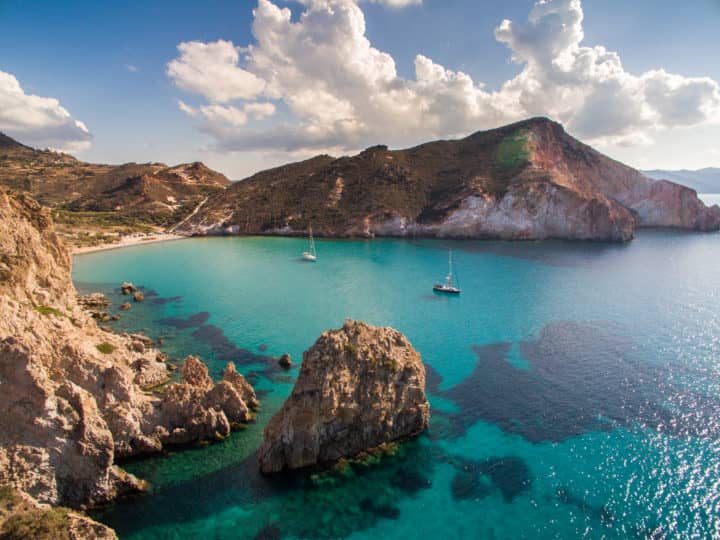 Existing from 1800 to 1807, the Septinsular Republic was a republic made up of the islands of Paxos, Ithaca, Corfu, Kythira, Zante, Lefkada and Kefalonia. Though nominally independent, the Septinsular Republic acted largely as a tributary state of the then-powerful Russian and Ottoman Empires. The republic was, however, of historical importance as the first incidence of Greek autonomous rule since the collapse of the Byzantine Empire in 1460. Here’s more information:
Existing from 1800 to 1807, the Septinsular Republic was a republic made up of the islands of Paxos, Ithaca, Corfu, Kythira, Zante, Lefkada and Kefalonia. Though nominally independent, the Septinsular Republic acted largely as a tributary state of the then-powerful Russian and Ottoman Empires. The republic was, however, of historical importance as the first incidence of Greek autonomous rule since the collapse of the Byzantine Empire in 1460. Here’s more information:
Beginning of the Septinsular Republic
The Ionian islands which made up the Septinsular Republic were controlled by the Italian city-state of Venice from 1386 until 1797, when Napoleon declared war on Venice and occupied the islands, transferring them over to French rule. Owing to their relative proximity to Russia and the Ottoman Empire, Napoleon heavily reinforced the islands, particularly Corfu. When Russia moved to counter Napoleon’s military ambitions in the Mediterranean, the islands became the target of a joint offensive campaign carried out by the Russians and the Ottomans that culminated in the siege of Corfu in 1799. In 1800, the Septinsular Republic was established as an independent state under the protection of Russia, which hoped to use an independent Greek republic as a counterbalance to Ottoman expansionism.
During the Septinsular Republic
Despite being officially free, the Septinsular Republic was subject to intense foreign intervention in its internal activities, particularly from the Russian government. Through both governmental representatives and a direct military presence in the islands, Russia was able to guide the newly founded republic’s policies in order to make it an effective check on Turkish power in the region.
The Russian military presence did, however, offer opportunities for native Greeks to learn the arts of contemporary warfare by joining the ranks of the Russian soldiery. Likewise, future Greek political figures developed their early careers in the republic, which gave them an opportunity to participate in governmental affairs. Owing to the protection afforded to shipping routes by the Russian and Ottoman governments, the Septinsular Republic also provided an opportunity for the Ionian islands to engage in increased trade.
Involvement of France with the Republic
The independence of the Septinsular Republic lasted for only seven years, ending in 1807. Russia’s participation in the War of the Fourth Coalition against Napoleon’s France, beginning in 1806, resulted in a severe diminishing of its military power. As a result, Russia ceded the Ionian islands back to France as part of the 1807 Treaty of Tilset, in which the Russian government concluded an uneasy alliance with Napoleon.
Though they were returned to French dominion in 1807, the Ionian islands that had made up the Septinsular Republic would change hands again in 1815 when the British defeated Napoleon. The region was brought under British authority as the Protectorate of the Ionian Islands, which would remain the relevant governing entity of the islands until 1864.
Though brief, the Septinsular Republic represented a major step toward independent rule in Ionian Greece after multiple centuries of outside rule. It also served as an opportunity for native Greeks to develop competencies in the military, political and commercial arenas under the protection of the Russian government.
Source:

